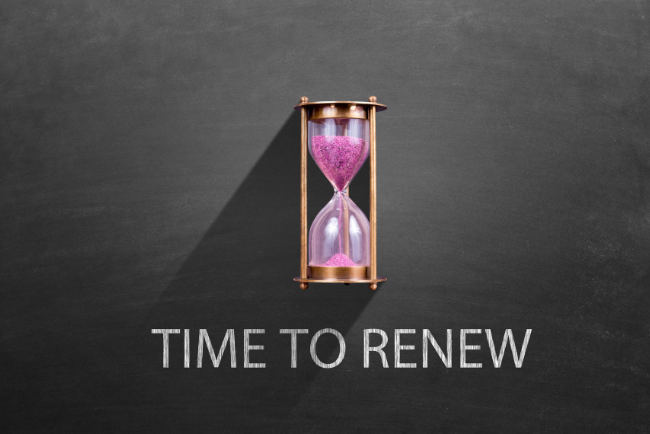Professional fields and trades require members to be certified to verify that they have reached a certain standard of skill, competence, knowledge, and experience. In psychotherapy, once we have a basic degree or two, perhaps more in-depth training in a few approaches, we are largely set in terms of certification. While our professional associations require that we engage in a certain amount of professional development each year, it is seldom anything as rigorous, demanding or comprehensive as the initial formal process of certification.
In this piece I propose that re-certifying should be considered for my profession at regular intervals to ensure a person’s fitness to practice over the course of a perhaps decades-long career. This article is followed by two additional pieces so the three can be read together — the second article highlights a personal experience which crystallised these thoughts for me, and the third explores the practices that could be drawn upon in such a process.
Trouble in the henhouse
As a profession, we therapists like to think of ourselves as caring, aware, competent, compassionate and deeply ethical people who are highly skilled and knowledgeable about how to navigate issues and circumstances that arise through life, but my observation of how I and others go about our own daily lives leads me to wonder if many of us may have become complacent; we might, in fact, have fallen prey to our own image.
Years ago, I was bawled out by a customer in a Sydney bookshop where I was happily browsing. A staff member I spoke to about the incident drily asked me which section I was in: ‘Psychology? Self-help?’ she asked. I nodded. She nodded knowingly, grimaced, and replied in a declarative tone, ‘Therapist.’ It would seem that, at least in the eyes of some, we have form for not living up to what we preach for our clients.
At conferences and training workshops, by way of example, I have been left agog in the face of attitudes and behaviours some of my colleagues display towards one another, towards conference staff, and when talking about clients.
In addition, from time to time, I hear the experiences of clients who have received less than competent service. In some instances, I hear how some clients have been harmed by past therapists. I have been unable to act on such reports because clients have not wanted to go public with their concerns.

In the UK, in addition to referring to ethics and professional standards, the term ‘fitness to practise’ is used to refer directly to a practitioner’s character, as well as their knowledge and competence. In this piece, rather than focus on outright ethical issues (e.g. exploitation, breach of confidentiality, maleficence), I want to use the term ‘fitness to practice’ to include the degree to which we embody and adhere to the principles we teach our clients over the course of our career. In these three pieces, I want to propose that there is merit in all therapists having regular ‘fitness checks’ across the span of a career. I propose that these would focus on whether we/ they embody and continue to do what we/ they are trained to do and are meant to apply in service of our clients’ best interests, rather than continue with our current practise which is to assume that no (bad) news is good news and, as long as there are no adverse reports regarding the more usual ethical issues that can arise in relation to wrongdoing by therapists, we are all automatically assumed to be fit to practise our craft indefinitely. I suggest that one way of doing so could be for us to reflect on the degree to which we literally practise what we preach when we find ourselves tested by the kinds of life circumstances that befall most of us in life.
At both ends of the career life cycle, I have sometimes felt concerned: about the soundness of mind of older therapists in the field (at the later end of the career arc) and at the over-weening confidence of younger, relatively inexperienced colleagues (at the earlier stages of the career arc). I have also known of colleagues who (in my view) are manifestly impaired in their own functioning as I observe it — in how they manage their own life circumstances, personal relationship issues, gambling, drug dependency, ill health, or in their dealings with others around them. Yet they continue to work, assuming their personal circumstances have no bearing on their fitness to practise. But I ask myself, is such an artificial division really possible? I contend it is not.
Studies have found that people have a tendency to overestimate their abilities. Repeatedly, research shows that around 90% of drivers think their driving ability is above average. Similarly, 90% of college professors think their teaching ability is superior. Perhaps the absence of any regular reality check on our own fitness to practise (beyond the absence of complaints lodged with oversight bodies) leaves us at risk of a similar illusory superiority by default about our own assumed ability and character. Perhaps, despite our ethical and professional guidelines, our fitness to practise is not being addressed as adequately as we might think.

A broader view
To my way of thinking, fitness to practise pertains not only to one’s theory of practice, degree of skill, and mastery of the craft of therapy. Fitness to practise encompasses a broad range of aspects about ourselves as people and not just during sessions with our clients. This includes our character traits, the degree to which we have worked through our own personal issues (past and ongoing as they arise) and how aware we are of them when they impact on present moment experience.
How do we manage our own enduring vulnerabilities? To what degree do we live and practise the values we profess to hold in our own lives, in our personal relationships, in how we communicate with others, how we deal with conflict, and how we go out into the world?
For me, fitness to practise is evidenced in the myriad of ways a practitioner goes about their lives, both professionally (dealing with clients, students, and colleagues), and also in how they approach and deal with their own lives, including self-care, personal relationships, and how they deal with the challenges that arise for them.
Let me bring in a caveat here: rather than advocating for some police state, China-style character monitoring and intrusion into practitioners’ daily lives, in addition to their conduct in work, I’m raising as an invitation for all of us to consider doing more regular personal reflection about how we are doing, should the glaring light of evaluation (using the ideas and principles we impart to our clients) be turned on our own lives to assess our own ways of navigating our own relationships and vicissitudes of life.
In our everyday, and times when the chips are down, do we embody and practise what we preach for our clients? In that sense, by those standards, would we pass certification?
For myself, I have personally experienced periods of time in my life that I have euphemistically thought of as ‘high demand’ e.g. having epileptiform seizures as a result of an adverse drug reaction and seeing how ‘stretched’ I became when dealing with the confluence of multiple life stressors at once. At those times, I actively questioned my fitness to practise. In keeping with those concerns, in addition to my regular practice outcome tracking mechanisms, and regular supervision arrangements, I sought additional external professional assessment and guidance about this.
This is why I believe that clinical supervision for mental health professionals is paramount. In my supervision contract, I have explicitly requested that my supervisor raise with me any concerns he might have about my soundness of mind and fitness to practise should he see me speak or act in any way that suggests I may be impaired. This explicit contract arose out of both my concerns about myself during certain high demand periods, and also because I had previously experienced concerns about the cognitive soundness of two senior colleagues I consulted with. In those relationships, I didn’t feel I could address this with either practitioner at the time. I don’t want my clients and supervisees to be left in the same position with me, should I, too, become impaired.
Following my second experience of having concerns about the cognitive soundness of a senior colleague of mine from whom I sought supervision, I contacted my professional association, the AASW. In that communication, I specifically asked about whether any consideration had been given by the association or, to their knowledge, by any other health care worker professional association, to monitoring and evaluating the ongoing cognitive and emotional fitness to practise of members over the arc of their careers. I explained my problem in this instance concerned an older practitioner appearing to show some evidence of cognitive deficits. I also referred to my own personal experience of having personally previously suffered epileptiform seizures which also left me wondering about what mechanisms might exist to evaluate my own fitness to practise as I recovered from this episode, by way of determining whether, if, and when I might be fit to return to work.
Tellingly, the person I consulted with within the association promised to speak to colleagues and do some research. Subsequently, I received a very brief email telling me that there was nothing on the books regarding such an assessment (in 2015). He noted that the only research article he could find was one that reported that older and more experienced therapists are more willing to cry in front of their clients (!). He also informed me that he could not find anything addressing my concerns with other health care fields, e.g. doctors, psychologists, psychiatrists, or nurses. He commented that he thought such an issue would and should rightly be addressed in supervision. And that is where that conversation ended.
I know firsthand, both as a supervisee and as a supervisor, that accountability for therapists is only as good as the soundness of the psychotherapy supervision contract between two parties. That contract relies on what the supervisee brings to the table for examination and reflection, including their own personal willingness to be the first object of reflection. It also relies on the supervisor’s capacity and willingness to ask probing, sometimes challenging questions and, where relevant, make connections between a supervisee’s work and their current or past life issues. Again, the latter can only happen if known to the supervisor and where such a mandate has been given. If a poor client retention rate is not examined, sudden endings and ruptures are not examined, or therapy that goes off track and trails off is not explored, recurrent themes of stuckness with certain clients or presenting issues are not raised for reflection and learning, or if a supervisor feels uncomfortable about naming possible cognitive deficit or emotional impairment they might observe in the supervisee, then there is little chance for a therapist to question their effectiveness, much less, what I’m calling fitness to practise.
Airline pilots – a case study
Certain professions, airline pilots, for example, require their members to continually undergo and pass stringent tests in order to demonstrate their fitness for the role. The re-certification process involves doing four flight simulator assessment training exercises each year (known as ‘sims’). A pilot will be assessed in a flight simulator regardless of how many times a year they fly, or how long their flying career may be.
The simulator exercises are also used to train pilots in how to handle events that have occurred recently or been identified as potential issues of safety concern. In addition, every 18 months, an assessor flies with them on a ‘route check’ during a normal passenger flight. This check assesses that the pilot is operating according to the airline’s rules and procedures for competency and air safety.
The cyclic assessment program pilots undergo are rigorous and mandatory.
If a pilot fails a sim exercise, they are removed from flying duties and undergo retraining before being allowed to undergo the assessment again. By having such protocols in place to monitor, assess, and train pilots in order to ensure that they are fit to fly, airlines have removed the subjectiveness and chance involved in relying on either self-reports from pilots, or contentious reporting by colleagues.
Airlines understand that there is a lot at stake in allowing a person to fly a plane. Having built-in training and regular competency checks goes a long way to ensure high levels of safety for all concerned – pilots, other staff, and passengers – each time they board a flight.
If passengers can be assured that their pilot’s level of skill and training are up-to-date, and have been assessed and re-certified as fit for purpose, why shouldn’t therapy clients also have a similar assurance when selecting a therapist?

So, then what? Could re-certification for therapists be an option?
For some time, I have thought that there ought to be some sort of recurrent re-certification program for therapists – maybe for all health care workers – to ensure our fitness to serve across the arc of our professional careers.
What would such re-certification mechanisms look like if we tried to build some for ourselves? I understand fears of such a process turning into a civil rights nightmare with gross overreach of control by monitoring bodies but I still offer it as a thought experiment worth exploring.
If we take a leaf out of the pilots’ handbook, re-certification for therapists would involve creating/simulating real-life challenges akin to those our clients face and bring to therapy, and/or therapists opting to be assessed based on actual life challenges that arise in their own lives.
Training assessment focus areas would include assessing how therapists respond when faced with a particular life challenge in their own lives. The therapist undergoing re-certification would be assessed in terms of a broad swathe of areas that therapists commonly teach and promote to clients facing similar challenges. Such things would include acceptance, self-compassion, reality-checking, emotional regulation, problem-solving. It would encompass effective goal setting, decision-making, values-based action, and communication including self-advocacy, assertiveness, and conflict management/resolution/repair. It would look at:
- relationship skills
- willingness to be influenced
- negotiating one’s own needs in balance with those of others
- care for and awareness of others
- asking for/giving/receiving aid, when appropriate.
Certain personality traits known to be essential for getting through adversity would also be assessed, including, to name a few:
- patience and frustration
- tolerance
- openness
- optimism
- persistence
- ingenuity
- cognitive flexibility
- resilience
- dealing with ambiguity
- perseverance in the face of difficulty
- patience and acceptance of how things are
while working to address/change what can be changed.
It would examine the therapist’s ability to quickly assess their changing landscape, its requirements, resources and challenges, and the agility with which they adapt to changing circumstances as well as to their own change in capacity, fortune, or status.
Areas of challenge to consider for re-certification could include such things as:
- birth of a child
- unexpected pregnancy
- pregnancy loss/fertility issues
- termination of a pregnancy
- high-needs child(ren)
- relationship conflict
- breakdown or loss
- domestic violence
- assault/trauma
Other issues could include:
- loss through death of partner, parent, child, or friend
- drug/substance/gambling dependency
- workplace conflict
- financial stress including bankruptcy
- physical illness
- injury or infirmity
- brain injury
- job loss
- sexuality/gender issues
- job relocation
- work restructure
- bullying and/or exploitation
- illness/accident
- chronic pain or other health issues
- disability
- homelessness
- isolation
- mental health challenge(s)
- ageing or dealing with ageing parents
- dealing with one’s own cognitive impairment
This is not meant to be an exhaustive list, but more of a guide.
I suggest that assessing and reflecting on how we, ourselves, address the circumstances we face in our own lives and how we conduct ourselves therein, would provide each of us with a valuable lens through which to gauge our fitness to practise. No matter how much we think we know about of the areas of concern clients bring to us every day—theories of psychology, problem-solving, ethical decision-making, crisis intervention, trauma, stress management, self-care, child and adult development, emotional regulation, health, role adjustment, motivation, goal-setting, communication and conflict, or loss, to name just a few — the degree to which we skilfully apply our own training in managing our life circumstances must be a part of our fitness to practise.
In that spirit, let me use my current experience of an unexpected life challenge as an unscheduled, in vivo experience of undergoing re-certification. In the second part of this series, I discuss how I responded after falling in the carpark at my local shopping centre and breaking two bones in my wrist. I invite you to read on to Part 2: Putting myself under the spotlight.


